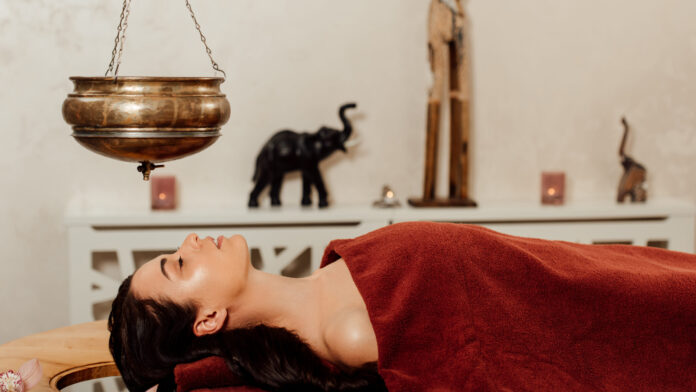Across Sri Lanka, a quiet transformation is unfolding in the way people live, breathe, and heal. In a world increasingly overwhelmed by speed, noise, and distraction, many are turning inward and backward, drawing from the ancient wisdom of the island to cultivate wellbeing in a new way. What was once seen as heritage or even habit is now being consciously reinterpreted into a modern lifestyle rooted in balance, awareness, and intention.
Ayurveda, one of the oldest systems of natural healing in the world, is experiencing a resurgence far beyond its medicinal value. In urban homes and boutique resorts alike, Ayurvedic principles are being used not only to treat illness but to prevent it through food, daily rituals, and self-awareness. Simple practices such as drinking warm coriander-infused water, oiling the body before a shower, or aligning meals with the body’s constitution are being embraced not as exotic treatments but as everyday acts of self-care.
This return to indigenous wellness is not limited to Ayurveda. The practice of yoga, once confined to monastic or spiritual spaces, has quietly become a fixture in the lives of working professionals, artists, and students. Early morning sessions on rooftops, beachside yoga circles at sunrise, and personal breathwork practices have all become common. These are not trendy fitness fads but deeply personal routines, often guided by local teachers who blend
classical teachings with contemporary insights.
What makes Sri Lanka’s wellness shift remarkable is its authenticity. It is not packaged or commercialized in the way wellness trends are often exported across the world. Instead, it feels organic and culturally rooted. The island’s wellness culture is not being invented, but remembered. Elders in households still speak of ingredients, rituals, and remedies passed down through generations. Now, younger Sri Lankans are returning to those memories with
fresh eyes, seeking meaning in them for the modern world.
In Colombo’s growing wellness community, new spaces are emerging that reflect this blend of tradition and innovation. Ayurveda-based cafes serve herbal teas and sattvic meals designed for balance. Co-working spaces integrate meditation rooms. Beauty salons offer head massages using traditional oils. Local skincare brands infuse native herbs into their formulations, appealing to a new generation that values both effectiveness and ethical sourcing.
This shift is also attracting global attention. International travelers arriving on the island are not only seeking beaches and heritage sites but immersive healing experiences. Wellness retreats in the central highlands and southern coast offer packages that include consultations with Ayurvedic doctors, curated meal plans, and spiritual guidance rooted in Buddhist teachings. These retreats are beginning to define a new tourism narrative for the country, one that moves away from sightseeing and toward self-discovery.
At the heart of this movement is a growing belief that wellness is not a product to be bought, but a way of life to be cultivated. It is about listening to the body, respecting natural cycles, and understanding the connection between the mind, food, and the environment. It is also about creating rituals in a time of disruption. Whether it is sipping a cup of herbal tea with intention, lighting a lamp in the evening, or rising with the sun for quiet reflection, these acts
are small but powerful responses to the chaos of modern life.
Sri Lanka’s quiet wellness revolution is not being driven by institutions or influencers, but by individuals choosing to live differently. In their homes, communities, and businesses, they are shaping a new narrative one that honors the past, engages the present, and prepares for a more balanced future.




